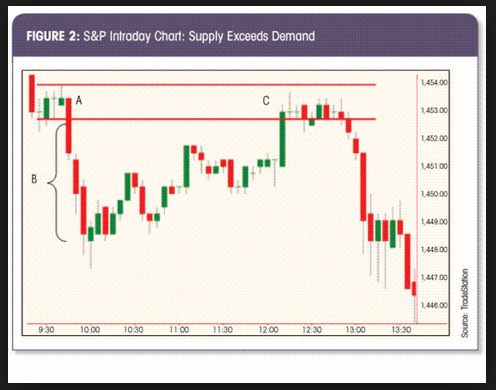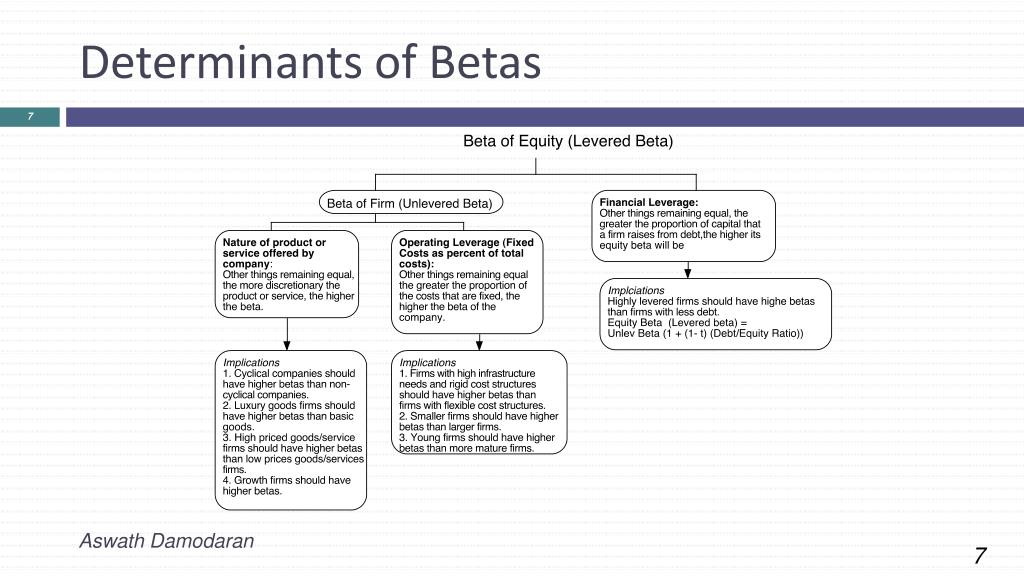Contents:


In the United States, the antitrust agencies agree to remedies under both processes; however, both agencies are ‘increasingly requiring an identified buyer ’. The EC more often may agree to remedies without an identified buyer. Finally, there are various requirements that the agencies can use to help ensure that the mechanics of the divestiture are likely to enable success, including appropriately tailored transition services agreements. To be sure, this can only be accomplished if investors commit the time and resources to engage with organizations’ leadership and decision-makers, which of course can be costly. But if they do, leveraging one’s seat at the table and governing through “voice” might offer an underappreciated opportunity to drive progress.
This is because ‘ermitting the merged what does mm mean to retain access to divested intangible assets . May make it more difficult for the purchaser to differentiate its product from its rivals, or may reduce the purchaser’s incentive to invest in the business’. The Reserve Banks have a responsibility for supervising and enforcing divestitures. Where Reserve Banks have delegated authority to extend divestiture periods, that authority should be exercised consistently with this policy statement. Similarly, the DOJ identified ‘ngoing entanglements’ as a ‘characteristic[] of proposed remedies that increase the risk’ that the ‘remedy will not effectively preserve competition’.
Company
In other circumstances, however, less stringent conditions may be appropriate. By selling off non-core units, investments, or assets, a company can create income to redistribute resources more effectively across other business units or areas. Divested business units may be spun off into their own companies. Companies may be required to divest some of their assets as part of the terms of a merger or acquisition. Governments may divest some of their interests or property—called privatization—to raise money to pay off debt or give the private sector a chance to profit. It is not to be disputed that in 1958 Okonite needed larger modern additional manufacturing facilities.
McGrath RentCorp (MGRC) Q4 2022 Earnings Call Transcript – The Motley Fool
McGrath RentCorp (MGRC) Q4 2022 Earnings Call Transcript.
Posted: Wed, 22 Feb 2023 08:00:00 GMT [source]
For example, in Novelis/Aleris, the parties agreed to an unusual arbitration proceeding regarding relevant market definition. The DOJ prevailed in the arbitration, which meant a divestiture would be required. When the divestiture was not effectuated by the agreed dates, the DOJ sought the appointment of a divestiture trustee. So how can investing in polluting industries be a tool for fostering sustainability? Investors can engage with a firm’s leadership and managers to encourage and even demand such efforts, including voting at shareholder meetings, having direct conversations with and monitoring management, proposing or blocking specific strategies or projects, and electing socially-conscious board members. Whether divestment will actually work comes down to whether it can put enough upward pressure on dirty firms’ cost of capital – that is, how much it costs to borrow money.
Fundamentals of Financial Management, Concise Edition
As with all major business decisions, any divestment will have its own set of pros and cons. A company’s management will generally analyze its entire portfolio to assess each area’s performance. That performance can then be considered against the company’s long-term business objectives to gauge whether each area qualifies as a core part of the company.
As discussed in more detail below, agencies generally look to ensure, among other things, that the divested assets are sufficient to preserve competition; that the buyer has the business and financial capability to compete successfully; and that the actual mechanics of the divestiture are likely to enable success. A divestiture strategy is a concerted and purpose-driven effort by a company to divest its assets, investments, or business units. The purchase of Okonite by LTV is not even remotely prompted by a purpose to acquire one of its suppliers, either real or potential. LTV seeks diversification of investment and business activity by a way which is described by some as a “conglomerate” merger.
The EC Remedies Guide similarly recognises the need for such provisions in similar circumstances. (the liquidation of a prohibited interest must be based upon a currently appraised value, not on a post-transfer valuation – in effect, setting a “cap” on the value). You have already informed us that you agree to the imposition of the cap and that you will move as quickly as possible to complete the divestment process in accordance with the requirements of s.7 and this formal opinion.
Prior to your appointment to the position of Secretary of Transportation and Construction, you were President and a member of the Board of Directors of TRPI. You were also a holder of 40% of the issued and outstanding capital stock of TRPI and a personal guarantor of rent arrearages due from time to time to the MBTA under the Master Lease Agreement. Under Section 16 of the Master Lease Agreement, TRPI may not, without the prior written consent of the MBTA, permit a voluntary transfer of any beneficial interest in TRPI.
Citigroup (C) Q4 2022 Earnings Call Transcript – The Motley Fool
Citigroup (C) Q4 2022 Earnings Call Transcript.
Posted: Sat, 14 Jan 2023 08:00:00 GMT [source]
Divestiture is a partial or complete release of a business unit by sale, exchange, closure, or liquidation of the business unit in question. In either event, the value related to your share of the potential rent dispute between TRPI and the MBTA must also be taken into account as of January 3, 1991 and must also be included in the final sales price for the TRPI shares. These challenges (or “market failures,” in dry economics language) are typically invoked to justify government intervention.
Scope relative to relevant market
From time to time the Board of Governors receives requests from companies subject to the Bank Holding Company Act, or other laws administered by the Board, to extend time periods specified either by statute or by Board order for the divestiture of assets held or activities engaged in by such companies. Such divestiture requirements may arise in a number of ways. For example, divestiture may be ordered by the Board in connection with an acquisition found to have been made in violation of law.
- There may be no magic answer, but here are four tips to help make an SAP divestiture project successful.
- For example, when the old AT&T broke in 1982, it became one of the most well-known instances of court-ordered divestment in history.
- It is common knowledge that the copper supply, at times, falls short of the demand and the market price per pound rises.
- When the divestiture was not effectuated by the agreed dates, the DOJ sought the appointment of a divestiture trustee.
- Having involvement from the users who know the software best is crucial, since you’ll be relying on their knowledge, past documentation and past test scripts.
Likewise, stakeholder capitalism is not a passive pursuit. After all, it is the firm that must ultimately implement such strategies, and for stakeholder capitalism to function as its adherents intend, stakeholders must also remain actively informed and engaged. Completing sales in India, Indonesia, Taiwan and Vietnam is on the docket for 2023, as well as further progress on our wind downs in Korea, Russia and China.
Divestitures can come about in many different forms, including the sale of a business unit to improve financial performance and due to an antitrust violation. In turn, the most successful divestitures have strong representation from both sides of the transaction—the former parent company and the new organization, Romaniello says. That includes strong technical resources from the former parent.
Frontiers of Business Conference: The Promise and Peril of Stakeholder Capitalism
At that point, our only operations in Russia will be those necessary to fulfill our remaining legal and regulatory obligations. When a company chooses to divest its assets or shed a business unit, it’s often a systematic process. Some companies choose to divest themselves of certain assets on ethical grounds. For example, if the management of a company is uncomfortable with the way a government is running its country, the decision might be made to sell off corporate assets in that country and cease activity there.
- Chapter 11 is a type of bankruptcy generally filed by corporations and involves a reorganization of their assets and debt.
- A divestiture takes place when a company decides to dispose of assets, investments, or a business unit.
- Certain divestiture periods—such as December 31, 1980 deadline for divestitures required by the 1970 Amendments to the Bank Holding Company Act—are not extendable.
If antitrust action is taken against a company, a court may end up ruling the company must divest itself of part of its business or certain of its assets to maintain a competitive business environment for other companies. What rationales for pursuing unrelated diversification are NOT likely to increase shareholder value? In order to reduce risk by way of spreading the company’s investments over a set of truly diverse industries. To enable a company to achieve rapid or continuous growth. To chance that market downtrends in some of the company’s businesses will be partially offset by cyclical upswings in its other businesses.
Merging parties will occasionally require use of the intangible assets that are subject to divestiture. For example, when intellectual property is required to be divested, if the merging parties also require access to that intellectual property, the agencies will consider permitting a non-exclusive licence of the intellectual property back to the merging parties from the divestiture buyer. For example, the DOJ agreed to such a licensing arrangement in the settlement permitting the closure of the Monsanto/Delta Pine Land transaction in 2007. There, the merging parties were required to divest the rights to certain cotton seed varieties, but were allowed to license back those rights for use in research. Similarly, agencies may permit non-exclusive licences to be provided from the merging parties to the divestiture buyers. That said, the DOJ’s new Merger Remedies Manual identifies ‘llowing the merged firm to retain rights to critical intangible assets’ as a ‘characteristic[] of proposed remedies that increase the risk’ that the ‘remedy will not effectively preserve competition’.

A company begins to encounter diminishing market growth and stagnating sales prospects in its mainstay business. Sticking closely with the existing business lineup and pursuing available opportunities. Government regulation may require corporations to divest some of their assets, especially to avoid a monopoly. Companies may also sell off business lines if they are under financial duress. For example, an automobile manufacturer that sees a significant and prolonged drop in competitiveness may sell off its financing division to pay for the development of a new line of vehicles.
Importantly, the measure of “carbon performance” developed by TPI assesses firms based on industry-specific benchmarks and whether they are aligned with pathways that would meet the greenhouse gas targets set forth by the Paris Agreement, allowing for comparisons across industries. My review of the existing divestment literature, though, suggests that the effects will likely be too small to meaningfully steer dirty firms toward green solutions, at least those that do not rely critically on external finance. Recent research has found that roughly 85% of investors would need to be socially conscious to increase the cost of capital by just 1%.4 While more research is needed to draw strong conclusions around the divestment movement’s potential effects, this figure is striking. It highlights how the majority of wealth likely must be in the hands of ESG investors to make a dent. A key factor in reviewing potential buyers was how they would support our people. We focused on organizations that were committed to welcoming our colleagues, as well as those with inclusive cultures where they could grow careers.
Kroger, Albertsons grocery announce $24.6 billion merger – Spectrum News 1
Kroger, Albertsons grocery announce $24.6 billion merger.
Posted: Fri, 14 Oct 2022 07:00:00 GMT [source]
The transferring of valuable resources and capabilities. Bankruptcy is a legal proceeding for people or businesses that are unable to repay their outstanding debts. In 2015, Thomson Reuters generated $12.209 billion in annual revenue. The Intellectual Property and Science division grew its existing revenue by 1% year-over-year and earned nearly $1 billion in revenue for 2015, representing 8% of Thomson’s total revenue. The division employed 3,400 of Thomson’s 52,000 employees.

Execution of a divestiture plan is often carried out via an internal project management team or specialist firm contracted to oversee the sale and transition. After a transaction has been negotiated and all approvals have been obtained, the transaction can be closed, and the assets are transferred as agreed. It may be helpful to follow completed divestiture transactions with a retrospective analysis exercise to figure out what went smoothly with the divestment and how the process could be improved next time.
Determining whether the cost a company incurs to enter the target industry will raise or lower production costs. Determining whether the cost to enter the target industry will strain the company’s credit rating. Determining whether a newly entered business presents opportunities to cost-efficiently transfer competitively valuable skills or technology from one business to another. Diversify into businesses that can perform better under a single corporate umbrella than they could perform operating as independent, stand-alone businesses. Spread its business risk across various industries by only acquiring firms that are strong competitors in their respective industries.




